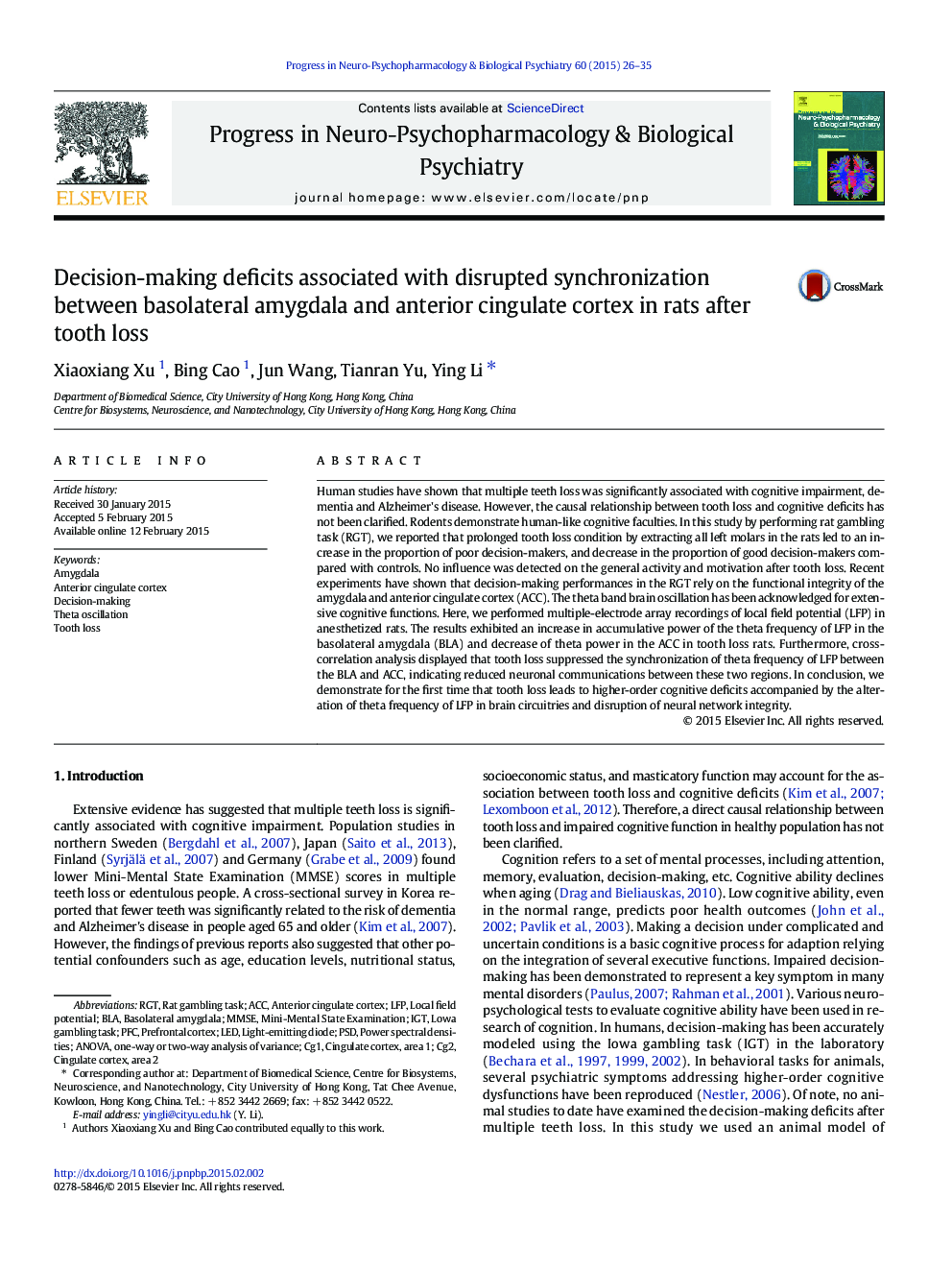| Article ID | Journal | Published Year | Pages | File Type |
|---|---|---|---|---|
| 2564726 | Progress in Neuro-Psychopharmacology and Biological Psychiatry | 2015 | 10 Pages |
Human studies have shown that multiple teeth loss was significantly associated with cognitive impairment, dementia and Alzheimer's disease. However, the causal relationship between tooth loss and cognitive deficits has not been clarified. Rodents demonstrate human-like cognitive faculties. In this study by performing rat gambling task (RGT), we reported that prolonged tooth loss condition by extracting all left molars in the rats led to an increase in the proportion of poor decision-makers, and decrease in the proportion of good decision-makers compared with controls. No influence was detected on the general activity and motivation after tooth loss. Recent experiments have shown that decision-making performances in the RGT rely on the functional integrity of the amygdala and anterior cingulate cortex (ACC). The theta band brain oscillation has been acknowledged for extensive cognitive functions. Here, we performed multiple-electrode array recordings of local field potential (LFP) in anesthetized rats. The results exhibited an increase in accumulative power of the theta frequency of LFP in the basolateral amygdala (BLA) and decrease of theta power in the ACC in tooth loss rats. Furthermore, cross-correlation analysis displayed that tooth loss suppressed the synchronization of theta frequency of LFP between the BLA and ACC, indicating reduced neuronal communications between these two regions. In conclusion, we demonstrate for the first time that tooth loss leads to higher-order cognitive deficits accompanied by the alteration of theta frequency of LFP in brain circuitries and disruption of neural network integrity.
